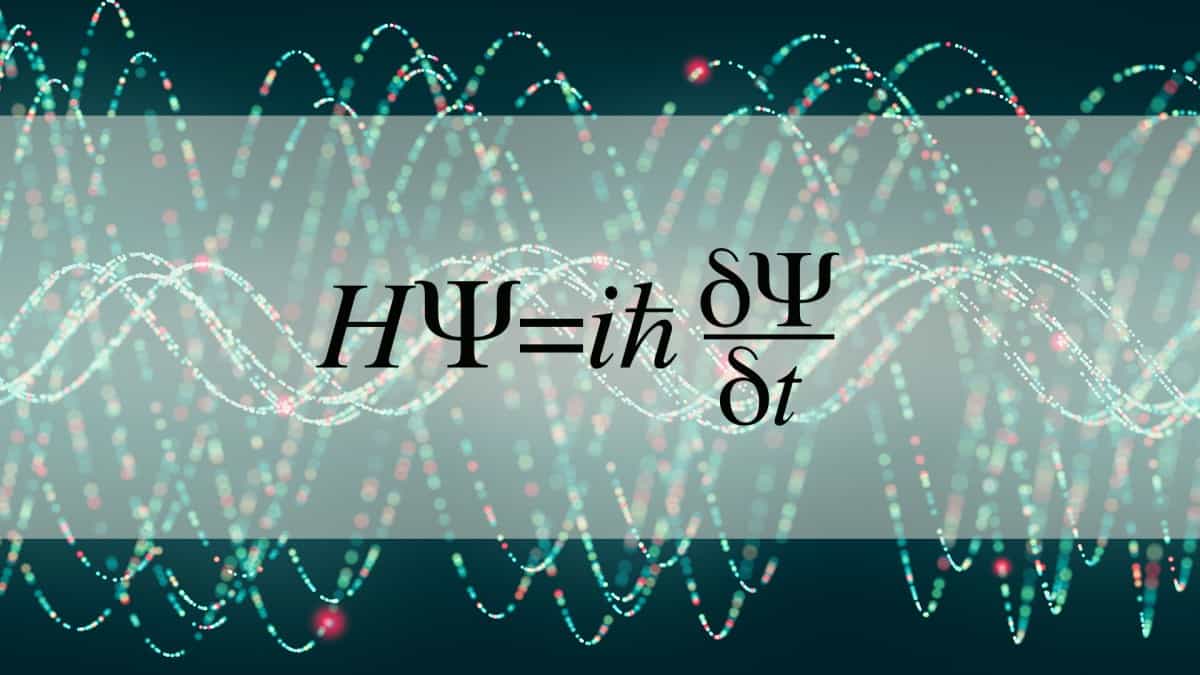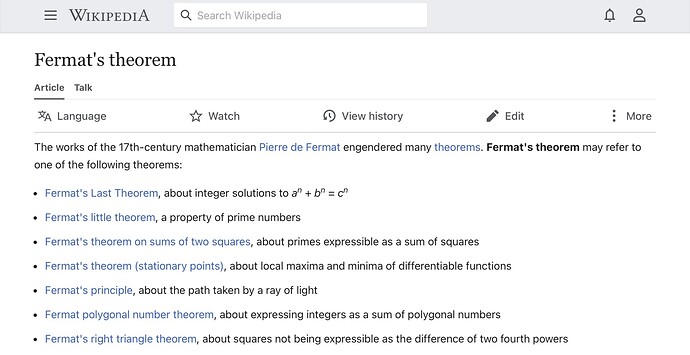That’s imposing English linguistics on Hebrew. How something translates into English is not how it is “functioning” in the source language. Stative verbs are functioning as stative verbs, we just don’t have the same kind of stative verbs in English, we use a copula and an adjective.
It is a wonder anyone ever figures this stuff out!
And where would that be? The circle of the earth certainly existed before mathematics. But in that case the ratio of the circumference and the diameter is not pi. No this concept of a “perfect circle” was an invention of mathematics which thus invented pi right along with it.
Nonsense! This very idea of an exponent let alone an imaginary exponent is an invention of mathematics. Yes we find uses of these ideas in describing the world, but it is just as much an invention as when we use poetry to describe the world.
Nonsense yourself.
Circles didn’t exist before humankind? (Think ‘a drop hitting still water’.) The ratio of whatever circle’s circumference to its diameter wasn’t π? Think of it as a fundamental physical constant – we don’t invent those, we discover them.
It’s not the same at all: math is deeply part of nature such that nature cannot be well understood without it; chess is a matter of arbitrary board size and shape with arbitrary pieces with arbitrary moves. Math is inherent in nature; chess isn’t inherent in anything and indeed isn’t even an emergent phenomenon logically arising from other phenomena.
There is speculative math that doesn’t arise from studying nature, but it is telling that quite often when scientists need math to describe some set of relationships in a new phenomenon the math for it has already been investigated and described and set out rigorously by some PhD student whose thesis when written was just speculative.
Not in the least; that is quite an irrational statement – unless you can demonstrate that chess is inherent to the structure and function of the universe. Any observer in the universe will find that the surface area of a sphere is 4 πr^3 and that there are only five convex regular polyhedra; this is a truth that is discovered about the universe – but no observer anywhere will discover the rules of chess by observing nature.
Mathematics arises from observation of nature; we do not invent its rules (unless you’re a PhD student in mathematics doing speculative math), we find them. The formula V = (1/3)(πr^2)h will be found to be true of a right circular cone by any observer, as will the fact that there are three conic sections (four if you count the circle separately from the ellipse). The only thing that we invent is the system of notation.
It’s really the other way around: the math for the universe is what determines what the universe will be like – the set of universal constants is essentially the programming and the universe is the result of the program.
That puts the relationship backwards, as though the people hiding Easter eggs for children didn’t know where they’d put the eggs until the children found them.
Something that will be found to be true by any observer of the universe is something that is discovered, and that is sharply different from things that cannot be found by observation of the universe.
It is interesting that often the math is discovered… and then its relevance and its necessity to understanding preexisting scientific reality is found and applied. Sometimes it might be the other way around, but I am neither mathematical nor science historian enough (let alone mathematician nor scientist enough ; - ) to cite relevant examples. (Even if I had ever been, there’s also the little detail of senior memory from the Math History class I took some four and a half decades ago. ![]() It also broke my 4.0 GPA
It also broke my 4.0 GPA ![]() – I do remember that.
– I do remember that. ![]() )
)
Hmm.
You and me both, bro. ![]() (The most astute thing I could say I already did: ‘Hmm.’ ; - )
(The most astute thing I could say I already did: ‘Hmm.’ ; - )
Wrong! There are no perfect spheres in nature with volumes or surface areas according to those formulas – and certainly these formulas were not obtained by observation. These are mathematical fabrications.
It is nothing like a computer program. And no it doesn’t determine what the universe will be like. The only thing which is determined are the possibilities. And you have spontaneous symmetry breaking which is like when a pole perfectly balanced on a point can fall in any direction.
Indeed! Calling the distance between them a discovery is weird since the distance is a result of their own actions.
So if I invent a game and show a board position where one side has won, then since anyone using the rules I invented will come to the same conclusion about that board position then that must be called a discovery? I don’t think so. Since it is my invented rules which made one side the winner in that board position, I don’t think it makes sense to call it a discovery. That stretches the words to the breaking point until everything must be called a discovery and nothing is an invention.
Yes, you are, still. Sorry. You don’t think the ratio of the circumference of a circular ripple to its diameter is going to be π, said circle caused by a drop falling into still water? That ratio is a fixed constant, irrespective of math.
Likewise the fact that spheres have volumes, and those volumes are according to fixed ratios. We did not invent the fact that spheres have volumes, but we did discover said ratios – we did not make them up that they could have been any different!
- Let P be the proposition that Mathematics presupposes God.
- Let ~P be the proposition that Mathematics does not presuppose God.
- If Mathematics presupposes God, could Fermat’s Theorem be False in s God-created Universe or would it be False in a Godless Universe?
- Intentionally so …
-
I may be wrong, but it does and it doesn’t, don’t you think?
- If you and I agree that Mathematics is a collection of facts, (a) does it matter if those facts are true or not? I think it does, wouldn’t you agree?
- Now, if Mathematics is a collection of facts and if those facts are true, (b) can/do those true facts presuppose God?
- If they can’t/don’t, wouldn’t somebody like Vern Poythress–who wrote Redeeming Mathematics A God-Centered Approach Vern S. Poythress–be wrong?
- But if the mathematical facts can and do presuppose God, then it would seem to me that Poythress has written an important book, no?
-
[From Poythress’ book]: *Introduction - “Why God?”
- "Does God have anything to do with mathematics? Many people have never considered the question. It seems to them that the truths of mathematics are just “out there.”1 In their view, mathematics presents us with a world remote from religious questions. Some people think that God exists; others are convinced that he does not; still others would say that they do not know. But all of them might say, “It does not matter when we look at mathematics.”
- “I think it does matter.”
In mathematics we don’t make up the answers, but we do make up the questions… and all the concepts in which to frame those questions.
To be sure every invention is in some sense a discovery. So… you can say that people discovered chess. To say something is invented does not negate that meaning of the word “discovery.” But there is a difference. And mathematics is the same because the concepts, the questions, and the axioms come from us and not from the world.
Besides it is demonstrable fact that different axioms give you a different mathematics. And not only that but it is proven that axiomatic systems are flawed in the sense that they cannot even show that they are consistent so they don’t hold themselves up by their own bootstraps. My friend complained that mathematicians refuse to dig deeper into foundational concepts. My reply was of course they don’t – they want to do mathematics not philosophy. They have as much a right to play their game of mathematics as anyone else plays the game they choose.
Furthermore, same as language, whether it is all our invention doesn’t change the fact that they are useful in describing the world. It is the nature of life that we impose our own order upon things. The fact that there is no objective absolute reality to them doesn’t change this.
Not very much sometimes. ![]()
I do too, but it still has to do with presuppositions and what worldview someone is bound to, or rather, which worldview they bind themselves to,1 so I don’t think that argument will sway anyone. But for us, it does make a beautifully integrated reality.
But regarding mathematics (and integration ; - ), the factor of beauty is not nothing. Euler’s identity is considered by many (including me) to be beautiful. I know a man whose life was saved by beauty – he was about to throw himself off a cliff back in the 1960s but was stopped by beauty, realizing there had to be more to reality than he was allowing for. He subsequently became a dynamic and influential Christian.
1 There’s an interesting argument that even atheists are religious, and that atheism, at least in an academic and esoteric sense, is a religion.2 That is because one of the roots of ‘religion’ is from the Latin ligare, ‘to bind’, and is shared by such words as ligament, ligand, ligature and obligatory.
2 Religion as a Cultural System
Right, like the question “What is the volume of a sphere?”, recognizing the concepts of spheres and volumes by which to frame the question. ![]() We went looking and discovered the preexisting mathematical relationships, the ratios and coefficients (oh, and exponents). We discover reality, we don’t invent it. (Let’s agree not to talk about the reality of complex numbers and quantum theory. ; - )
We went looking and discovered the preexisting mathematical relationships, the ratios and coefficients (oh, and exponents). We discover reality, we don’t invent it. (Let’s agree not to talk about the reality of complex numbers and quantum theory. ; - )
Not me I can’t, not in the sense you mean it. It wasn’t a preexisting part of reality waiting to be found.
No, because the reality of the relationships preexisted. An intelligent crow or octopus discovers the relationships amongst things to solve problems, they don’t invent the relationships.
We might have a discussion about tools however – how much is invention and how much is discovery? A crow can pick up a twig for instance, to solve a problem. Did it invent a tool or did it discover it? How much of math is the discovery of preexisting relationships and how much is the invention of tools? (I remember back in the 1970s when HP calculators with RPN came out – they were a joy [but pricey!] and we could put our slipsticks away. ; - )
- Ha! I heard a similar,if not the same story back in the mid-1970s when I was in St. John the Baptist Catholic Charismatic Renewal community. In the version I heard, it wasn’t beauty that stopped the would-be suicide, and the guy had actually jumped when an angel slammed him against a wall or the cliff, and threatened to do it again, if he tried again.
How about a firsthand account (I’ve met him):

